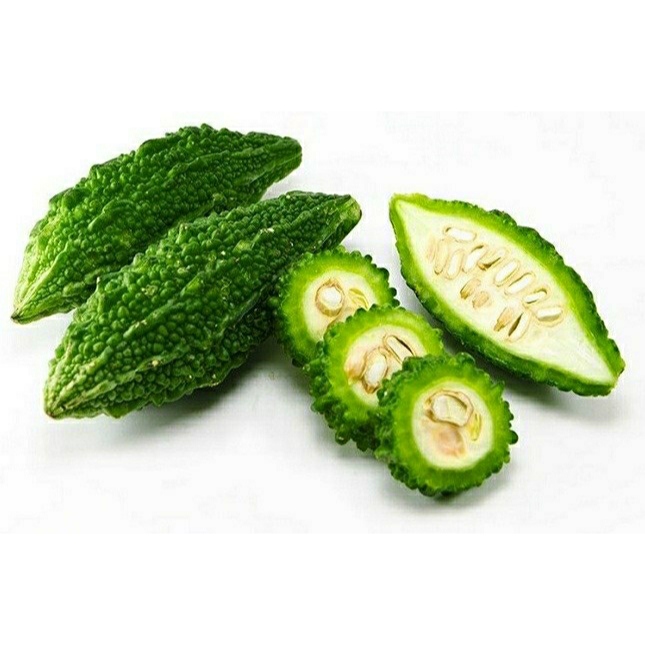
Tomato
Nutrition fact:
| Amount Per 100 grams |
| Calories 18 |
|
% Daily Value* |
| Total Fat 0.2 g |
0% |
|
Saturated fat 0 g
Polyunsaturated fat 0.1 g
Monounsaturated fat 0 g
|
0% |
| Cholesterol 0 mg |
0% |
| Sodium 5 mg |
0% |
| Potassium 237 mg |
6% |
| Total Carbohydrate 3.9 g |
1% |
|
Dietary fiber 1.2 g
Sugar 2.6 g
|
4% |
| Protein 0.9 g |
1% |
| Vitamin A |
16% |
Vitamin C |
22% |
| Calcium |
1% |
Iron |
1% |
| Vitamin D |
0% |
Vitamin B-6 |
5% |
| Cobalamin |
0% |
Magnesium |
2% |
*Per cent Daily Values are based on a 2,000 calorie diet. Your daily values may be higher or lower depending on your calorie needs.
Here are some impressive health benefits:
- Good for the Skin and Hair.
- In tomatoes, there is presence of Lycopene content which helps in controlling growth of cancer cells. By cooking tomatoes, production of lycopene increases.
- Good for Your Bones
- Repairs Damages from Smoking
- Vitamin A, Vitamin B and potassium, helps to decrease cholesterol levels and blood. In long run, It prevent heart related diseases.
- Great Anti-Oxidant.
- Tomatoes helps in improve digestive system and liver. Tomatoes include fiber which helps to prevent constipation.
The Disadvantages of Eating:
- Large amounts of tomato leaf or green tomatoes are POSSIBLY UNSAFE. In large amounts, tomato leaves or green tomatoes can cause poisoning. Symptoms of poisoning may include severe mouth and throat irritation, vomiting, diarrhea, dizziness, headache, mild spasms, and death in severe cases.

Onion
Nutrition fact:
| Amount Per 100 grams |
| Calories 40 |
|
% Daily Value* |
| Total Fat 0.1 g |
0% |
|
Saturated fat 0 g
Polyunsaturated fat 0 g
Monounsaturated fat 0 g
|
0% |
| Cholesterol 0 mg |
0% |
| Sodium 4 mg |
0% |
| Potassium 146 mg |
4% |
| Total Carbohydrate 9 g |
3% |
|
Dietary fiber 1.7 g
Sugar 4.2 g
|
6% |
| Protein 1.1 g |
2% |
| Vitamin A |
0% |
Vitamin C |
12% |
| Calcium |
2% |
Iron |
1% |
| Vitamin D |
0% |
Vitamin B-6 |
5% |
| Cobalamin |
0% |
Magnesium |
2% |
*Per cent Daily Values are based on a 2,000 calorie diet. Your daily values may be higher or lower depending on your calorie needs.
Here are some impressive health benefits:
- May Benefit Heart Health.
- Loaded With Antioxidants.
- Contain Cancer-Fighting Compounds.
- Help Control Blood Sugar.
- May Boost Bone Density.
- Have Antibacterial Properties.
- May Boost Digestive Health.
The Disadvantages of Eating:
- While not especially serious, eating onions can cause problems for some people. The carbohydrates in onions may cause gas and bloating, according to National Digestive Diseases Information Clearinghouse.

Broccoli
Nutrition fact:
| Amount Per 100 grams |
| Calories 34 |
|
% Daily Value* |
| Total Fat 0.4 g |
0% |
|
Saturated fat 0 g
Polyunsaturated fat 0 g
Monounsaturated fat 0 g
|
0% |
| Cholesterol 0 mg |
0% |
| Sodium 33 mg |
1% |
| Potassium 316 mg |
9% |
| Total Carbohydrate 7 g |
2% |
|
Dietary fiber 2.6 g
Sugar 1.7 g
|
10% |
| Protein 2.8 g |
5% |
| Vitamin A |
12% |
Vitamin C |
148% |
| Calcium |
4% |
Iron |
3% |
| Vitamin D |
0% |
Vitamin B-6 |
10% |
| Cobalamin |
0% |
Magnesium |
5% |
*Per cent Daily Values are based on a 2,000 calorie diet. Your daily values may be higher or lower depending on your calorie needs.
Here are some impressive health benefits:
- Packed With Vitamins, Minerals and Bioactive Compounds.
- Contains Potent Antioxidants That Offer Health-Protective Effects.
- Bioactive Compounds May Contribute to Reduced Inflammation.
- May Protect Against Certain Types of Cancer.
- Antioxidants and Fiber May Aid Blood Sugar Control.
- May Support Heart Health in a Variety of Ways.
- Promotes Healthy Digestion and Reduced Constipation.
The Disadvantages of Eating:
- In general, broccoli is safe to eat, and any side effects are not serious. The most common side effect is gas or bowel irritation, caused by broccoli's high amounts of fiber. "All cruciferous vegetables can make you gassy".

Peas
Nutrition fact:
| Amount Per 100 grams |
| Calories 81 |
|
% Daily Value* |
| Total Fat 0.4 g |
0% |
|
Saturated fat 0.1 g
Polyunsaturated fat 0.2 g
Monounsaturated fat 0 g
|
0% |
| Cholesterol 0 mg |
0% |
| Sodium 5 mg |
0% |
| Potassium 244 mg |
6% |
| Total Carbohydrate 14 g |
4% |
|
Dietary fiber 5 g
Sugar 6 g
|
20% |
| Protein 5 g |
10% |
| Vitamin A |
15% |
Vitamin C |
66% |
| Calcium |
2% |
Iron |
8% |
| Vitamin D |
0% |
Vitamin B-6 |
10% |
| Cobalamin |
0% |
Magnesium |
8% |
*Per cent Daily Values are based on a 2,000 calorie diet. Your daily values may be higher or lower depending on your calorie needs.
Here are some impressive health benefits:
- Good source of plant-based protein. Being rich in fibre and one of the best plant-based proteins makes peas a satisfying component of a meal.
- May improve blood sugar management.
- May support digestive health.
- May support heart health.
- May be cancer protective.
The Disadvantages of Eating:
- They Contain Antinutrients. Despite the abundant nutrients in green peas, there is a downside to their nutritional quality — they contain antinutrients. These are substances found in many foods, such as legumes and grains, that may interfere with digestion and mineral absorption.

Bitter Melon
Nutrition fact:
| Amount Per 100 grams |
| Calories 34 |
|
% Daily Value* |
| Total Fat 0.2 g |
0% |
|
Saturated fat 0 g
Polyunsaturated fat 0.1 g
Monounsaturated fat 0 g
|
0% |
| Cholesterol 0 mg |
0% |
| Sodium 13 mg |
0% |
| Potassium 602 mg |
17% |
| Total Carbohydrate 7 g |
2% |
|
Dietary fiber 1.9 g
Sugar 1 g
|
7% |
| Protein 3.6 g |
7% |
| Vitamin A |
48% |
Vitamin C |
92% |
| Calcium |
4% |
Iron |
5% |
| Vitamin D |
0% |
Vitamin B-6 |
40% |
| Cobalamin |
0% |
Magnesium |
23% |
*Per cent Daily Values are based on a 2,000 calorie diet. Your daily values may be higher or lower depending on your calorie needs.
Here are some impressive health benefits:
Packs Several Important Nutrients. Bitter melon is a great source of several key nutrients.
Can Help Reduce Blood Sugar.
May Have Cancer-Fighting Properties.
Could Decrease Cholesterol Levels.
May Aid Weight Loss.
The Disadvantages of Eating:
- diarrhea, vomiting, and other intestinal issues.
- dangerous lowering of blood sugar if taken with insulin.
- liver damage.

Carrot
Nutrition fact:
| Amount Per 100 grams |
| Calories 41 |
|
% Daily Value* |
| Total Fat 0.2 g |
0% |
|
Saturated fat 0 g
Polyunsaturated fat 0.1 g
Monounsaturated fat 0 g
Trans fat regulation 0 g hu
|
0% |
| Cholesterol 0 mg |
0% |
| Sodium 69 mg |
2% |
| Potassium 320 mg |
9% |
| Total Carbohydrate 10 g |
3% |
|
Dietary fiber 2.8 g
Sugar 4.7 g
|
11% |
| Protein 0.9 g |
1% |
| Vitamin A |
334% |
Vitamin C |
9% |
| Calcium |
3% |
Iron |
1% |
| Vitamin D |
0% |
Vitamin B-6 |
5% |
| Cobalamin |
0% |
Magnesium |
3% |
*Per cent Daily Values are based on a 2,000 calorie diet. Your daily values may be higher or lower depending on your calorie needs.
Here are some impressive health benefits:
Improves vision: Carrots are rich in beta-carotene, which is converted into vitamin A in the liver.
Helps prevent cancer.
Slows down aging.
Promotes healthier skin.
Prevents heart disease.
The Disadvantages of Eating:
- Carrots are full of vitamins, minerals and fibers that are good for your health. But eating too many carrots can bring in too much beta-carotene the molecule responsible for carrots' bright orange hue and a precursor of vitamin A. This can lead to excess blood carotene which can discolor the skin.















